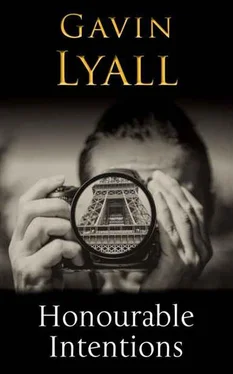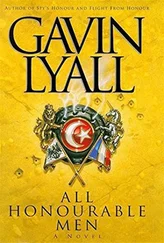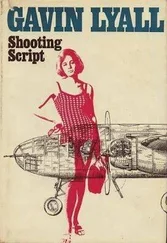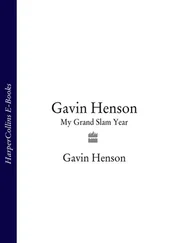Gavin Lyall - Honourable Intentions
Здесь есть возможность читать онлайн «Gavin Lyall - Honourable Intentions» весь текст электронной книги совершенно бесплатно (целиком полную версию без сокращений). В некоторых случаях можно слушать аудио, скачать через торрент в формате fb2 и присутствует краткое содержание. Год выпуска: 2014, Издательство: PFD Books, Жанр: Шпионский детектив, Исторический детектив, на английском языке. Описание произведения, (предисловие) а так же отзывы посетителей доступны на портале библиотеки ЛибКат.
- Название:Honourable Intentions
- Автор:
- Издательство:PFD Books
- Жанр:
- Год:2014
- ISBN:нет данных
- Рейтинг книги:4 / 5. Голосов: 1
-
Избранное:Добавить в избранное
- Отзывы:
-
Ваша оценка:
- 80
- 1
- 2
- 3
- 4
- 5
Honourable Intentions: краткое содержание, описание и аннотация
Предлагаем к чтению аннотацию, описание, краткое содержание или предисловие (зависит от того, что написал сам автор книги «Honourable Intentions»). Если вы не нашли необходимую информацию о книге — напишите в комментариях, мы постараемся отыскать её.
Honourable Intentions — читать онлайн бесплатно полную книгу (весь текст) целиком
Ниже представлен текст книги, разбитый по страницам. Система сохранения места последней прочитанной страницы, позволяет с удобством читать онлайн бесплатно книгу «Honourable Intentions», без необходимости каждый раз заново искать на чём Вы остановились. Поставьте закладку, и сможете в любой момент перейти на страницу, на которой закончили чтение.
Интервал:
Закладка:
Once, he’d been good at minutes himself. Of mess meetings, staff pow-wows and the like. Could he still do it?
The Steam Submarine Committee met in Whitehall Court at approximately 12 noon on April 16 1914.
In the chair: Commander C.
In attendance: Capt. R, Secty; Lieut. Jay; Mr O’G.
A selection of cold comestibles and beverages was provided by the ground-floor restaurant. Lieut, jay commented unfavourably on the quality of the sausage rolls.
The minutes of the last meeting, held some ten years previously, having been presumed lost, the Chairman opened the proceedings by inviting Lieut. Jay to report on events at Bow St Police Court that morning. Jay said that the witness Guillet had failed to appear for his resumed cross-examination. The barrister representing the Crown apologised for the witness’s absence and said he had been assured that every effort was being made by the police to find him. Broad hints were then dropped by Mr Noah Quinton that he had been about to expose said witness as a perjurer and this might not be unconnected with his disappearance. The magistrate then adjourned the hearing for twenty-four hours.
The Chairman said he had been told by Captain R that he had seen the deceased witness on the previous night but been assured that he had not brought about the witness’s decease, although he was sure that Captain R had been justified in doing so if he had, in fact, done so. When Captain R could get a word in edgeways, he said that he had neither killed nor interfered with said witness, merely listened to him in a nearby public house. He might have pointed out that the witness’s testimony could result in a perjury charge, but had come to the conclusion that the witness was more frightened of some unnamed person or persons than he was of such a charge,
Discussion ensued concerning the possible identity of the above-mentioned person (s), the Paris Prefecture of police being mentioned.
Mr O’G opined that he did not think the Prefecture was guilty of such conduct, nor that it really intended to put Grover Langhorn on trial in France. In his view, its intention was to establish a hold over him and compel him to give evidence incriminating others at the Cafe des Deux Chevaliers. The police would rather convict such others than an American youth.
He further opined that little distinction was drawn by the Paris police between anarchists who robbed banks etc. as “expropriation” and criminals who just robbed banks etc. Lieut. Jay said that casual discussions at Bow St had led him to believe that London policemen thought the same way.
The Chairman asked Mr O’G if he thought Grover Langhorn was a sincere anarchist. O’G said that he had received that impression from Paris newspapers which had interviewed Mme Berenice Collomb. She had been represented as saying that Langhorn wanted to slaughter every capitalist in the world but would not, on the other hand, hurt a fly. Capt. R commented that such a remark seemed to him consistent with Mme Collomb’s mode of thought.
Some pointless discussion then ensued. The Chairman called the meeting to order and asked Lieut. Jay what he had discovered at Somerset House. Jay reported that he had uncovered a marriage certificate showing that Ethan James Langhorn and Enid Elizabeth Bowman were married at St Jude’s church in Southsea, Portsmouth, on May 9 1890. The Chairman calculated that the bride had then been nearly three months pregnant and commented favourably on her skill in acquiring a husband in that time.
Continuing, Jay said that the certificate revealed the bride to have been aged 25, the groom a boatswain aged 42, his address being a seamen’s hostel in Southampton. The bride’s address was given as 15 Abercromby Road, Southsea. No parents were among the witnesses . Of these, three were female and assumed to be friends of the bride; the fourth, George Pavlides, might have been a shipmate of the groom.
It was then decided by the Chairman that Capt. R and Mr O’G would proceed immediately to Portsmouth to see if they could acquire any additional information, despite the passage of some twenty-three years. There being no objections to this except from Capt. R and Mr O’G, the meeting was declared closed at approximately 1.30 p.m.
He must have been moving his lips, because O’Gilroy said: “Talking to yeself again? Bad sign, that.”
“Had a nice refreshing sleep?”
“Wasn’t sleeping, jest thinking.” O’Gilroy found and lit a cigarette. “That marriage, with the American sailor, it went wrong. Or mebbe the feller died a while gone.”
Ranklin raised his eyebrows.
“Why else would ye tell yer son his father wasn’t really his father? Either ye’ve come to hate the feller or he’s been long anough dead it don’t matter, and ye reckon ye can tell the truth – and mebbe make a bob or two out of it.”
Ranklin thought this over and accepted it. The trouble with high-flown meetings around big tables was forgetting that behind all the national implications lay very simple human emotions. “You should have said that at the meeting.”
But O’Gilroy just grunted. He said as little as possible at such meetings. Perhaps it had been his years in the ranks, perhaps the more dangerous years in the ranks of those plotting for a free Ireland, but the result was that he was the most secretive and distrusting of them all.
If O’Gilroy got on a tram in a strange city, he already knew which door to use, how one paid, generally what to do next. Nobody had told him, he’d just watched how others did it. He simply hated being conspicuous, of giving away his ignorance or next move by asking – as Ranklin would instinctively have done. So while Ranklin’s protection was that he seemed a simple, open-faced English gentleman, O’Gilroy’s was in not being noticed at all. Neither was right nor wrong, except for himself, and essentially they were complementary. As Ranklin had once put it, they might add up to one competent spy. The hope was that nobody would expect a spy to come in two halves.
Beyond the train’s window, a fuzz of bright green, brought out by the last few days of sunshine, was blurring the skeleton hands of the winter trees beside the track. The world was waking again, and Ranklin had felt safer when it was asleep.
6
From Portsmouth town station they took a motor-taxi, dropping Ranklin at St Jude’s Church and taking O’Gilroy on to Abercromby Road. Ranklin hadn’t hoped to find anything more from the parish register – a marriage certificate is simply copied from that – but the vicar might still be the one whose name was on the certificate and remember more.
After twenty-four years he wasn’t the same, of course, and his predecessor was dead. Nor was the current incumbent, who’d had a properly busy Easter, in any rush to help. His congregation included too many senior naval officers – St Jude’s was quite fashionable, by Portsmouth standards – for him to be impressed with self-important civilians.
Ranklin’s only consolation was thinking that, if they’d swapped jobs, O’Gilroy might have ended up in custody for striking a “stupid heathen Protestant”.
However, Ranklin kept his temper and finally the vicar commented: “Odd, this interest in that wedding. I had the lady’s sister asking earlier this week.”
“Really? Does she live locally?”
“No, she said she was staying at the Queen’s – a Mrs Simmons, I think.”
Ranklin, who’d had no idea there was a sister, was afire to be off, but now the vicar had melted to his politeness and held him for a five-minute lecture on the care of the vicarage lawn.
Читать дальшеИнтервал:
Закладка:
Похожие книги на «Honourable Intentions»
Представляем Вашему вниманию похожие книги на «Honourable Intentions» списком для выбора. Мы отобрали схожую по названию и смыслу литературу в надежде предоставить читателям больше вариантов отыскать новые, интересные, ещё непрочитанные произведения.
Обсуждение, отзывы о книге «Honourable Intentions» и просто собственные мнения читателей. Оставьте ваши комментарии, напишите, что Вы думаете о произведении, его смысле или главных героях. Укажите что конкретно понравилось, а что нет, и почему Вы так считаете.











